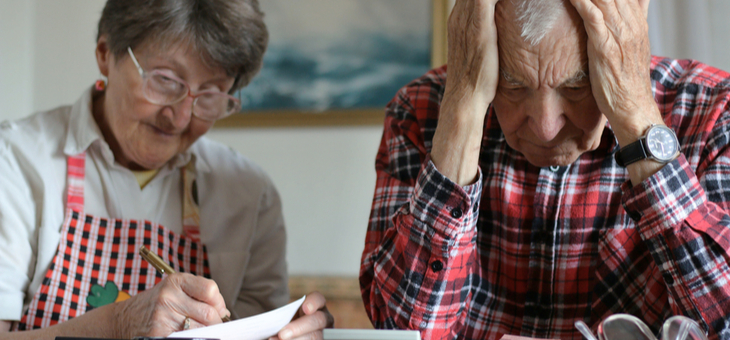The economic impact of COVID-19 will mean that many Australians will have to work longer, and others will have to settle for less in retirement, according to a wealth management expert.
Wealth management group Mercer released its Global Pension Index on Tuesday, which included an assessment of the impact of COVID-19 on retirement systems around the world.
Lead author of the report Dr David Knox, who is an actuaries expert, said the pandemic was heightening the financial pressures retirees face and adding to retirement insecurity.
“The economic recession caused by the global health crisis has led to reduced pension contributions, lower investment returns and higher government debt in most countries.
“Inevitably, this will impact future pensions, meaning some people will have to work longer while others will have to settle for a lower standard of living in retirement,” Dr Knox said.
“It is critical that governments reflect on the strengths and weaknesses of their systems to ensure better long-term outcomes for retirees.”
With governments around the world taking on more debt to deal with the effects of COVID-19, there are real fears that this will restrict the ability of future governments to support their older populations, either through pensions or through the provision of other services such as health or aged care.
To help alleviate the impact of COVID-19, governments have deployed a diverse range of responses to support their citizens and pension systems.
Professor Deep Kapur, director of the Monash Centre for Financial Studies (MCFS), said that many governments around the world have responded to COVID-19 with substantial fiscal stimulus and central banks have adopted unconventional monetary policy.
“The outlook for investment returns is muted while volatility may be elevated, adding to the normal challenges of risk management in a pension portfolio,” Prof. Kapur said.
“Additionally, some governments have allowed temporary access to saved pensions or reduced the level of compulsory contribution rates to improve liquidity positions of households.
“These developments will likely have a material impact on the adequacy, sustainability and integrity of pension systems, thereby influencing the evolution of the Global Pension Index in the coming years.”
Australia’s early access superannuation scheme allowed for those who had taken an income hit of 20 per cent or more due to the pandemic to take up to $20,000 from their nest egg.
Australia still ranked fourth overall on the Global Pension Index, but each of the three countries ranked above Australia (the Netherlands, Denmark and Israel) had a contribution rate of 12 per cent or higher.
Australia also ranked only 14th for retirement income adequacy.
All three of the nations above Australia on the list also have a universal state pension.
Australian Institute of Superannuation Trustees (AIST) chief executive Eva Scheerlinck said the fact that Australia recorded a drop in two key categories of the index this year, highlighted the need for the government to commit to the 12 per cent superannuation guarantee.
“Previous analysis by Mercer and AIST has shown that low paid, young Australians will bear the brunt of an estimated $100 billion shortfall in retirement savings due to the COVID pandemic,” Ms Scheerlinck said.
“The COVID early release scheme unfortunately forced many people to choose between poverty now or poverty in retirement,” she said. “Today’s release from Mercer confirms that poverty in retirement is a real possibility for millions of Australians.
“The long-term impact of this will mean older people, especially women, will need to work longer and have to settle for a lower standard of living in retirement,” Ms Scheerlinck said.
Dr Knox agreed that the pandemic had increased gender inequality in the provision of retirement income.
“Even before COVID-19 disrupted economies across the world, many women faced retirement with less savings than men,” Dr Knox said.
“Now, that gap is expected to widen further in many pension systems, particularly in the hardest hit sectors where women represent more than half of the workforce, such as hospitality and food services.”
Are you worried about having to settle for a lower standard of living in retirement? Are you worried that the government will cut support to retirees in future years?
If you enjoy our content, don’t keep it to yourself. Share our free eNews with your friends and encourage them to sign up.
Related articles:
https://www.yourlifechoices.com.au/health/covid19/tree-change-vs-sea-change
https://www.yourlifechoices.com.au/retirement/news/how-we-fared-in-global-retirement-index
https://www.yourlifechoices.com.au/age-pension/income-and-asset-tests/talking-retirement-and-pension-strategies

